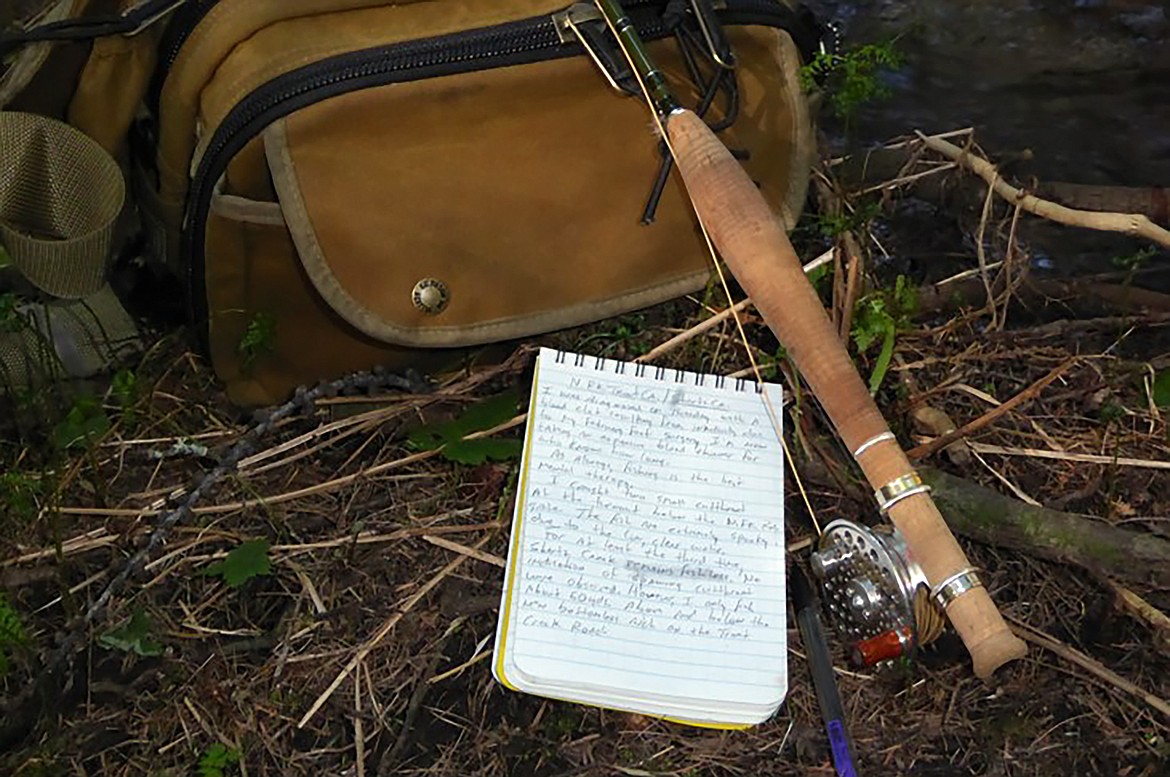Field notes, nature journals help chronicle memories
Professors Paul “Pine Tree” Kit and “Doc” Bryant stressed the importance of field notes to their forestry students at McNeese State University. In fact, they graded our notebooks for field assignments in the southern pine forests of southwest Louisiana. Accuracy, neatness and correct map features earned points.
Nearly half a century later, I still have my 1972 notebook along with a dozen others chronicling a long forestry career. Moreover, numerous field notebooks document my fly fishing, hiking, geocaching and outdoor adventures.
Field notes imply some sort of scientific methodology requiring knowledge of Latin names, board foot volume tables or cartography skills. For a more artistic expression of your creativity, consider nature journaling — the softer side of field notes. Whatever inspires you to document about a memorable outdoor experience qualifies as nature journaling. Sketches, doodles, a leaf or flower pressed between the pages, or even a verse of poetry all occupy importance in a nature journal.
Modern technology such as smartphones, tablets and social media platforms allow instant gratification in capturing and sharing outdoor experiences. Within seconds of summiting, you can ping a mountaintop selfie to friends’ devices worldwide. A minnow-sized cutthroat trout will grow into a trophy with just the right camera angle. (Contact me for instructions or take a peek at any angling publication.) Why collect field samples for future identification when a cellphone app will confirm its identity on the spot?
But a few of us still employ the old-school technique of using paper and No. 2 pencil to scratch down our noteworthy outdoor memories.
While any notebook will do, I recommend Rite in the Rain® from the J.L Darling Company headquartered on the wet-side of Washington in Tacoma. In using their products, you will follow the century-old legacy of timber cruisers, surveyors, field scientists, military and countless other outdoor folks who have relied upon this patented, coated paper for preserving valuable field notes.
As proof of its durability and resistance to water, I once purposely immersed my Rite in the Rain® fly fishing journal in the waters of the River Flesk, County Kerry, Ireland to memorialize a special occasion. Many other dunkings over the years resulted from heavy rains, accidental slips or similar misfortunes.
Unless you have a job that requires it, most people keep field notes or a nature journal for their personal remembrance of time spent outdoors. No one else needs to see them but they may garner sentimental value in the future for a grandchild. In many cases though, nature journals have recorded important historic or scientific information.
For example, Meriwether Lewis spent a dreary February 9, 1806, at Fort Clatsop in present day Oregon documenting tree characteristics in the legendary Lewis and Clark journals. The explorer, with limited knowledge of botany, used both words and a detailed sketch to describe the distinctive leafy bract extending from the cone of a specimen he dubbed “Fur No. 5.” (Meriwether obviously never won a spelling bee.) We now know this common western conifer as Douglas-fir and teach children to visualize the leafy bract as a mouse jumping into a hole.
Don’t dismiss nature journaling as one of those touch-feely activities that only appeals to nature lovers, poets or artists. Remember that Henry David Thoreau kept meticulous notes on the flowering dates of lilacs and other plants surrounding Walden’s Pond in Massachusetts. Others have maintained those records for over a century and a half. Scientists study these trends for important insights into seasonal climate changes.
If you want to preserve your adventures the old-fashioned way, get stated now with a nature journal. It doesn’t require a Wi-Fi hotspot, cellular service or battery recharging. A pocket knife, however, will occasionally come in handy to sharpen your pencil.

